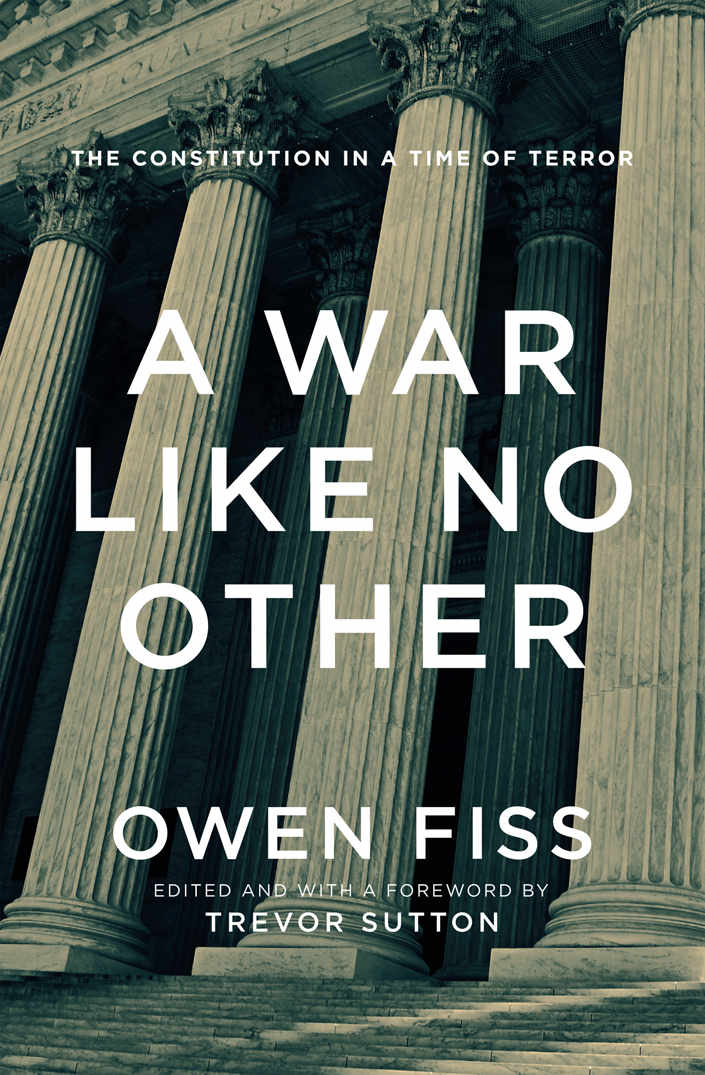
A War Like No Other
The Constitution in a Time of Terror
کتاب های مرتبط
- اطلاعات
- نقد و بررسی
- دیدگاه کاربران
نقد و بررسی

July 20, 2015
In 10 essays written between 2003 and 2011, Fiss (The Law as It Could Be), an emeritus professor of law at Yale, considers the proper balance between the U.S. constitution's protections and the War on Terrorâwhat he calls the "war that knows no limits." Through the prism of his belief that the courts must protect the constitution's core democratic values, Fiss examines U.S. policies on the Guantánamo Bay detention camp, the rights of enemy combatants, the legality of the Iraq War, American use of torture and extraordinary rendition, wiretapping and intelligence gathering, and the targeted killing of enemy combatants. He concludes that the courts, Presidents Bush and Obama, and Congress have woefully failed to protect the values embedded in the constitution. Fiss's commentary can be judgmental, as when he labels a Supreme Court opinion on the rights of U.S. citizens accused of being enemy combatants "an act of judicial cowardice," but it's very convincing. Also, he presents an instructive and effective overview of the Israeli Supreme Court Justice Aharon Barak and his work to balance the rule of law in the face of terror. Fiss's work is thought-provoking, though the writing is legalistic and presumes a basic knowledge of controlling legal principles.

March 15, 2015
Fiss (Emeritus, Law/Yale Univ. The Law As It Could Be, 2003, etc.) returns with a scholarly and cautionary collection of essays focusing on what he views as the post-9/11 debasements of key provisions of the Constitution. The author, who has published often about the importance of our constitutional freedoms (The Irony of Free Speech, 1996, etc.), pulls no punches in these trenchant pieces, some of which are edited versions of speeches. Because they deal with related topics (the loss of protections), they often revisit the same ground and/or individuals: Guantanamo, court cases, politicians, and administration figures such as Dick Cheney and Eric Holder. Examining the issues of habeas corpus for terror suspects, extraordinary rendition, warrantless surveillance, and targeted killing of terror suspects (via drone or otherwise), the author continually lands on the side of more rather than less freedom. Although he recognizes the dangers of the new era of stateless terror, he firmly argues that it is better to protect our freedoms of speech, privacy, and due process than to surrender them-as we have been doing since the 9/11 attacks with the subsequent statutes (the Patriot Act et al.) and court rulings that empower the government to investigate us with relative impunity. Although Fiss places principal blame on President George W. Bush, he does not exonerate President Barack Obama; the author repeatedly chides our current president for his failures to follow through on a number of his campaign promises about constitutional protections. Although the author seeks balance-see, for example, his strong final piece about targeted killings-he believes that our judges, legislators, and elected executives should err on the side of freedom, not restriction. In these extremely relevant pieces, Fiss once again emerges as a fierce defender of freedom.

June 1, 2015
This collection of essays by Fiss (Sterling Professor Emeritus of Law, Yale Univ.; The Irony of Free Speech) examines the protections of the Constitution in the aftermath of September 11. Ten chapters are divided into two sections. Part 1 covers the beginning of the war on terror and the prosecution of prisoners at Guantanamo Bay. Fiss goes on to discuss the legal grounds used by the George W. Bush administration to jail enemy combatants and suspected terrorists. Part 2 examines explicit methods used to fight terrorism and guard national security, such as torture and the National Security Agency's surveillance program. The author uses Supreme Court cases on these subjects to illustrate the long-term effects of these techniques on the Constitution and on ordinary citizens. Also discussed is the transition from the Bush era to the Barack Obama administration and the similarities and differences between them. VERDICT This book addresses important legal and ethical questions about the war on terror. It is designed for law students, legal professionals, and readers with a thorough understanding of legal topics. Recommended for law and academic libraries.--Becky Kennedy, Atlanta-Fulton P.L.
Copyright 2015 Library Journal, LLC Used with permission.

























دیدگاه کاربران